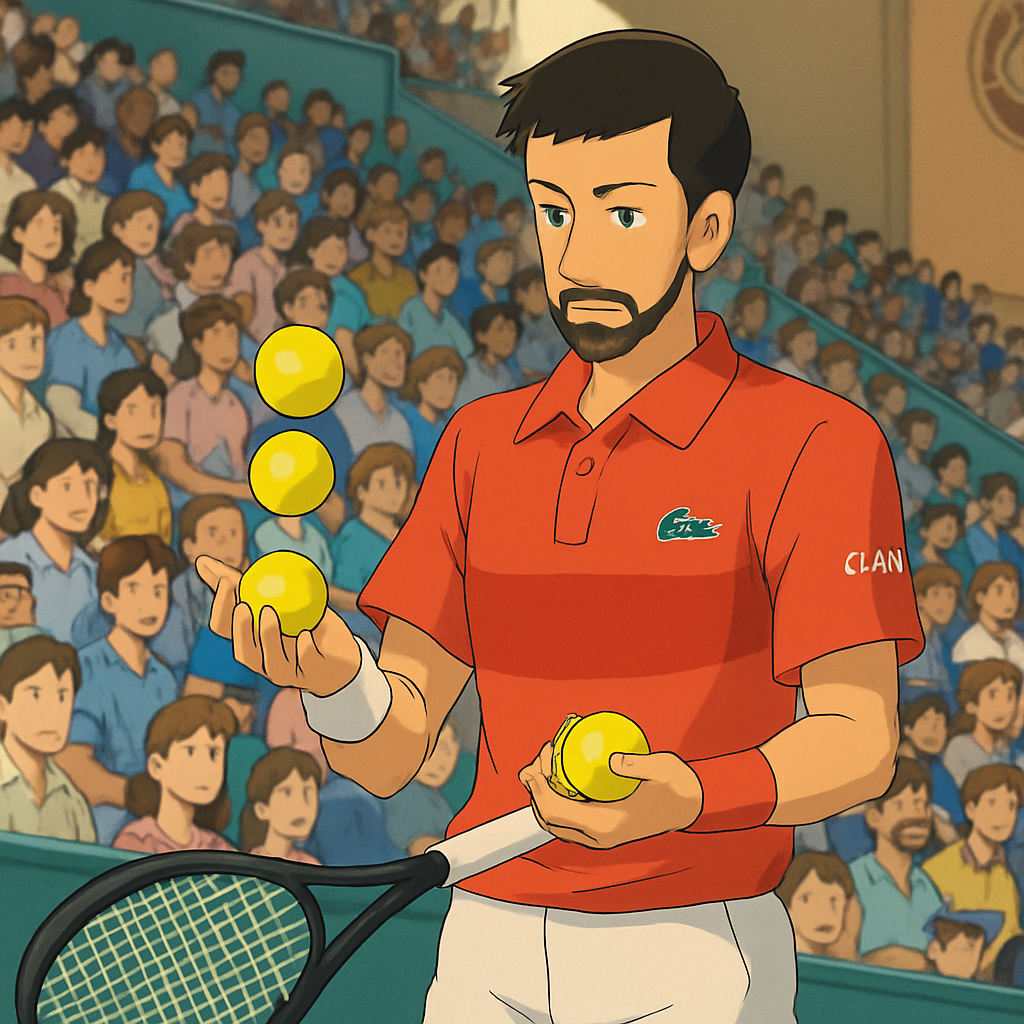PARIS — Novak Djokovic's request to avoid a late-night match at the French Open was ignored by tournament organizers, as the Serb was handed the dreaded night session slot for his third-round clash against Lorenzo Musetti on Saturday. Despite his plea for a daytime match, Djokovic will now face the challenge of playing under the lights at Roland Garros—a scenario he openly expressed discomfort with earlier in the week.
The 24-time Grand Slam champion had made his preferences clear after his second-round victory over Roberto Carballés Baena, stating, "I don't want the night session. I've had enough late finishes this week, and I need proper recovery time." However, the French Open scheduling committee opted to place Djokovic's match in the prime-time slot, likely due to its high-profile nature and television appeal.
Djokovic's Struggles Under the Lights
Night sessions at Roland Garros have been a contentious topic for Djokovic in recent years. The slower, heavier conditions under floodlights often neutralize his aggressive baseline game, making matches more physically demanding. Key concerns include:
- Cooler temperatures, which make the clay courts play slower
- Higher humidity, affecting ball bounce and player movement
- Disrupted recovery schedules due to late finishes
Djokovic's coach, Goran Ivanišević, had previously criticized the scheduling, telling reporters, "Novak is not a night owl on clay. These conditions don't suit his game, and it's frustrating when the tournament ignores player requests." The Serb's record in night sessions at Roland Garros stands at 3-2, a stark contrast to his dominant daytime performances.
Tournament Organizers Defend Decision
French Open tournament director Amélie Mauresmo addressed the scheduling controversy in a press conference, stating, "We have to balance player preferences with fan engagement and broadcast commitments. Night sessions are a key part of the Roland Garros experience." She emphasized that Djokovic's match against Musetti—a rematch of their thrilling 2021 fourth-round encounter—was a natural fit for prime time.
The Musetti Factor
Lorenzo Musetti, the 30th seed from Italy, presents a unique challenge for Djokovic. The 22-year-old possesses a versatile game with a lethal one-handed backhand and excellent touch at the net. Their previous meeting at Roland Garros saw Musetti take a two-set lead before retiring in the fifth set due to cramps. Key factors in this matchup:
- Musetti's confidence on clay—he's won 80% of his matches on the surface this season
- Djokovic's recent struggles with form and fitness
- The psychological edge from their previous marathon encounter
Djokovic's Physical Concerns
The 37-year-old champion has been managing multiple physical issues during the tournament, including a right knee problem that required medical attention during his second-round match. His physiotherapist, Ulises Badio, was seen massaging the area during changeovers. Djokovic admitted, "The knee isn't perfect, but I'm fighting through it. Late finishes make recovery harder, especially at my age."
Sports medicine specialist Dr. Laurent Chevalier explained the additional challenges night sessions pose: "Cooler nighttime temperatures cause muscles to stiffen, increasing injury risk. For older athletes like Djokovic, this compounds existing wear-and-tear issues."
Fan and Analyst Reactions
The scheduling decision sparked debate across the tennis world. Former champion Mats Wilander criticized the move on Eurosport: "This is disrespectful to the greatest player of all time. If Roger Federer had made this request at Wimbledon, they would have accommodated him immediately."
However, some defended the tournament's stance. Tennis journalist Ben Rothenberg noted, "Night sessions drive viewership and ticket sales. Djokovic-Musetti is arguably the most compelling third-round match—it makes business sense."
What's Next for Djokovic?
Should Djokovic overcome Musetti, he would face either 13th seed Taylor Fritz or 23rd seed Francisco Cerundolo in the fourth round. Both potential opponents present contrasting styles—Fritz's powerful serve and forehand versus Cerundolo's clay-court expertise. The path only gets tougher:
- Potential quarterfinal against Casper Ruud or Hubert Hurkacz
- Possible semifinal showdown with Jannik Sinner or Carlos Alcaraz
- A potential final against defending champion Rafael Nadal or Daniil Medvedev
As Djokovic prepares for his night session test, all eyes will be on how he adapts to the conditions. His ability to overcome both his physical limitations and the tournament's scheduling decisions may define his quest for a record-breaking 25th Grand Slam title. As he put it bluntly after his last match: "I'll play whenever they tell me to play. But don't expect me to be happy about it."

